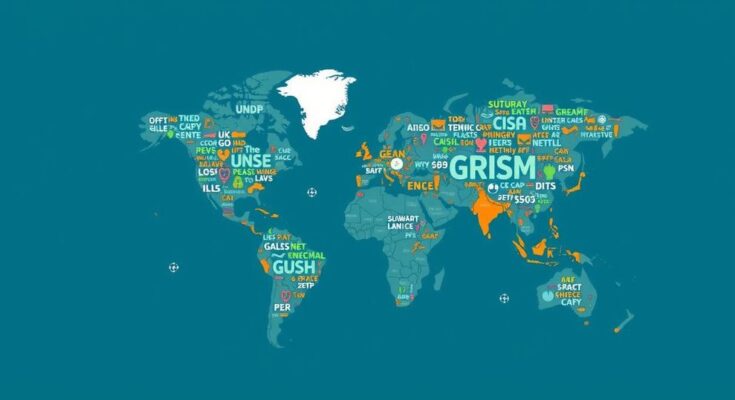At COP29, UNAIDS and UNDP warned that climate change poses significant risks to HIV services and vulnerable populations, exacerbating the AIDS epidemic. The report highlights a “triple funding crisis” – inadequate climate finance, a US$ 9.5 billion gap in HIV funding, and overwhelming debt in the worst-hit countries. Immediate action to integrate public health considerations into climate strategies is essential to protect gains made against HIV/AIDS.
At COP29 in Baku, Azerbaijan, the Joint United Nations Programme on HIV/AIDS (UNAIDS) and the United Nations Development Programme (UNDP) issued a critical warning regarding the interplay between climate change and the HIV/AIDS epidemic. They emphasized that the deteriorating public health infrastructure, food insecurity, water scarcity, and increased displacement caused by climate change could significantly heighten the risk of HIV infections and exacerbate AIDS-related fatalities among vulnerable populations. The agencies highlighted that the recent progress made against AIDS is precarious and could be undone by worsening climate conditions.
Winnie Byanyima, Executive Director of UNAIDS, underscored the urgency of addressing what she termed a “triple funding crisis” characterized by inadequate climate financing, a substantial US$ 9.5 billion shortfall in HIV funding, and overwhelming national debt burdens faced by the countries that are most affected. These countries, particularly in Sub-Saharan Africa, not only grapple with high rates of HIV infections but are also significantly impacted by climate change, which aggravates existing inequalities.
The report pointed out alarming statistics, stating that approximately 3,100 out of 4,000 adolescent girls and young women newly infected with HIV each week live in Sub-Saharan Africa, regions that are increasingly vulnerable to severe climate conditions. In response to this complex crisis, 70% of the Global Fund’s HIV financing is allocated to the 50 most climate-vulnerable nations, yet many still face budgetary deficits that threaten health outcomes.
The event also drew attention to real-world consequences of climate-induced crises, such as Cyclone Freddy’s devastating impacts on Malawi, where individuals living with HIV faced significant challenges in accessing necessary healthcare and medical supplies during the chaos. UNAIDS and UNDP are calling for immediate action, urging governments to address health inequalities through inclusive governance and sustainable financing to avert a potential climate-induced AIDS crisis.
Marcos Neto, Director of the Bureau of Policy & Programme Support at UNDP, remarked on the growing recognition of the intersection between the climate emergency and health threats confronting global populations, emphasizing the need for integrated responses that prioritize health within climate action frameworks. This call to action reflects a broader effort to develop resilience amid interconnected crises, ensuring that no community is left behind as the world grapples with these pressing issues.
The document underscores the profound implications of the climate crisis on global health, particularly concerning the AIDS epidemic. The UN agencies have drawn attention to the intersection of environmental degradation and public health, highlighting how climate vulnerabilities can multiply the challenges faced by communities already struggling with high HIV prevalence rates. With many countries confronting escalating debt and insufficient funding for public health initiatives, the existing struggles against the AIDS epidemic could be further complicated by climate-related disruptions. The overarching aim is to align health and environmental policies to foster a more sustainable and equitable future.
In conclusion, the participation of UNAIDS and UNDP at COP29 reinforces the critical connection between the climate crisis and HIV/AIDS epidemic, highlighting the urgent need for coordinated global efforts to address intertwined health and environmental challenges. The call for enhanced funding, improved governance, and abilities to combat inequalities is essential for safeguarding vulnerable populations from the escalating effects of climate change on public health. By recognizing and addressing these interdependencies, the international community can foster resilience and solidarity in the fight against both the climate and health crises.
Original Source: reliefweb.int




